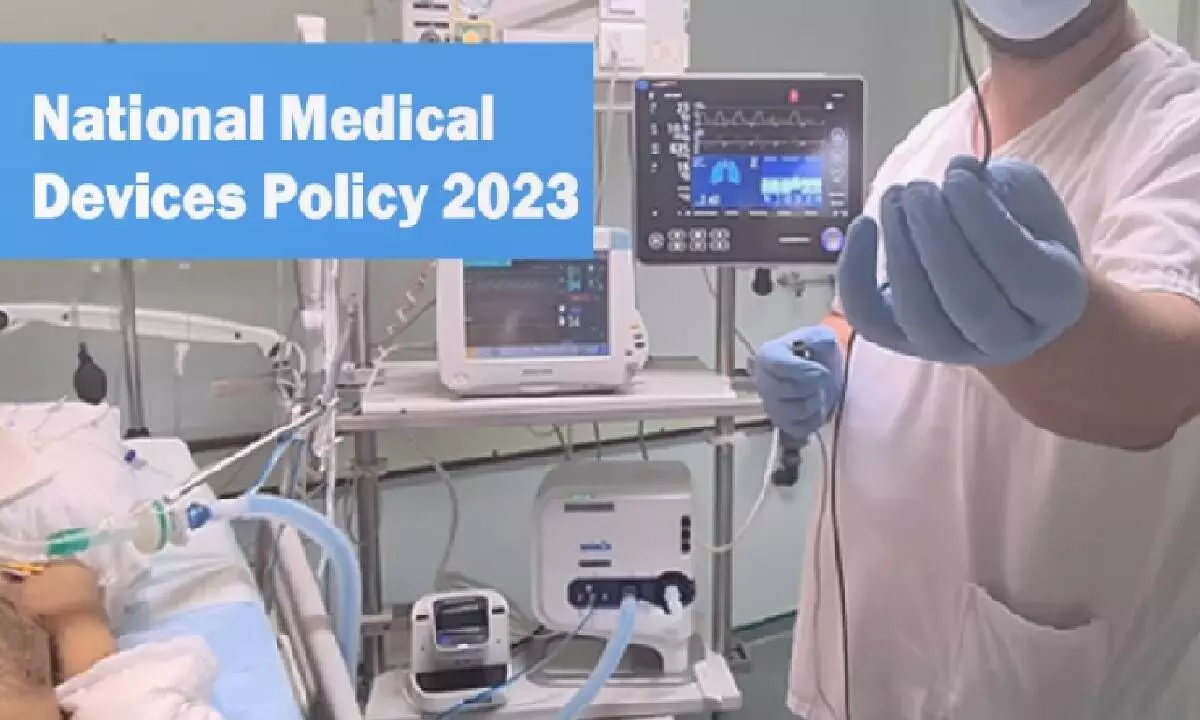DoP’s new policy will ring in orderly growth of medical device sector
The proposed roadmap aims to accelerate growth of the sector and achieve all related missions
image for illustrative purpose

Driven with the determination to expedite implementation of the National Medical Devices Policy (NMDP), the Department of Pharmaceuticals (DoP) has come up with an elaborate strategy document that emphasises on data security measures, adoption of national nomenclature for medical devices, a strategy to manage e-waste of obsolete medical devices and strengthening of technology transfer capabilities in the medical devices sector in the country.
The strategy document is an initiative of the DoP to fine tune and proceed with the implementation of the National Medical Devices Policy, 2023, which was launched in May to fulfil the country’s aspirations to achieve Aatmanirbhar in medical devicese. The government will make efforts towards adoption of National Nomenclature for Medical Devices, in close coordination with the Central Drugs Standard Control Organisation (CDSCO) and the Department of Health and Family Welfare. To ensure regulatory streamlining, one of the six broad areas of work under the policy, it will promote adoption of Global Medical Devices Nomenclature (GMDN) or Universal Medical Device Nomenclature System (UMDNS) and set up guidelines under standard setting organisation such as the Bureau of Indian Standards (BIS) to guide researchers, innovators, entrepreneurs through research and design phases of product development and prepare them for the testing phases.
Earlier in a major move to boost the sagging morale of the medical devices sector, the central government had come out with the National Medical Devices Policy, 2023 which will facilitate an orderly growth of the medical device sector to meet the public health objectives of access, affordability, quality and innovation. This sector is expected to realise its full potential, with strategies like building an enabling ecosystem for manufacturing along with a focus on innovation, creating a robust and streamlined regulatory framework, providing support in training and capacity building programs and promoting higher education to foster talent and skilled resources in line with the industry requirements.
It also looks to encourage domestic manufacturing of medical devices. The policy has a vision for accelerated growth path with a patient-centric approach and to emerge as the global leader in the manufacturing and innovation of medical devices by achieving 10-12% share in the expanding global market over the next 25 years. The policy lays down a roadmap for accelerated growth of the medical devices sector to achieve missions like access and universality, affordability, quality, patient centred and quality care, preventive and promotive health, security, research and innovation and skilled manpower.
Now, the strategy document, in tune with the approach paper on the NMDP, published for stakeholder consultation and the NMDP, 2023 notified on May 2, states that the government will look at aligning regulations related to the medical devices sector to the national laws for personal health data security. A suitable mechanism of data security and annotation will be attempted. This is a significant MOVE as with the fast growing influence and usage of digital technology in the healthcare ecosystem, there has been a growing requirement for adequate data security measures to ensure patient data security for patient safety. It will also work towards providing awareness to the innovatory community on regulator-compliance, early on in the product development cycle through structured programmes using course curriculum, skill training or workshops.
The NMDP, 2023 covers six broad areas of work for the promotion of the medical devices industry including regulatory streamlining, enabling infrastructures, facilitating research and development (R&D) and innovation, attracting investments in the sector, human resource development and brand positioning and awareness creation. As part of infrastructure development, the strategy document states that in close coordination with the Ministry of Environment, processes will be developed for e-waste management of obsolete medical devices.
The DoP’s initiative strengthens technology transfer capabilities would provide increased opportunities for the academia to translate knowledge into products and technologies. Technology transfer offices, including those established by DBT-BIRAC, AGNIi and other enabling mechanisms for promoting academic patenting, would be leveraged to support technology transfers. The policy strives to create an ecosystem to promote research and innovation in the sector under the ambit of the Department's proposed separate ‘Policy to Catalyse R&D and Innovation in the Pharma-MedTech Sector in India.

